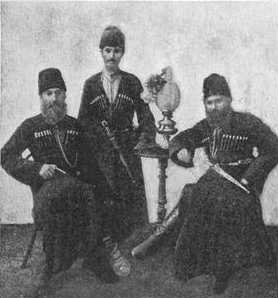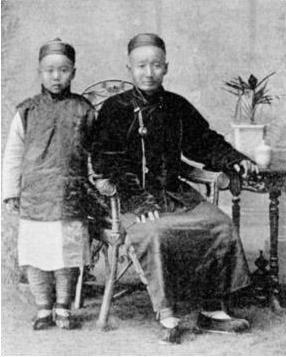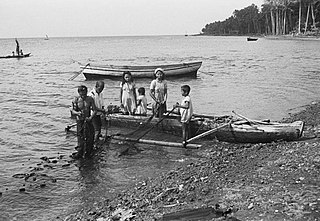
North Sulawesi is a province of Indonesia. It is mainly located on the Minahasa Peninsula of the island of Sulawesi, south of the Philippines and southeast of Sabah, Malaysia, but also includes various small archipelagoes situated between the Minahasa Peninsula and southern Philippines. It borders the Philippine province of Davao Occidental and Soccsksargen regions to the north, the Maluku Sea to the east, Gorontalo and the Celebes Sea to the west and the Gulf of Tomini to the southwest. The province's furthest extent, the outlying and isolated island of Miangas to its north, is the northernmost island of Indonesia as a bordering with the Philippines.

Cochin Jews are the oldest group of Jews in India, with roots that are claimed to date back to the time of King Solomon. The Cochin Jews settled in the Kingdom of Cochin in South India, now part of the present-day state of Kerala. As early as the 12th century, mention is made of the Jews in southern India by Benjamin of Tudela.

Mountain Jews are Jews of the eastern and northern Caucasus, mainly Azerbaijan, and various republics in the Russian Federation: Chechnya, Ingushetia, Dagestan, Karachay-Cherkessia, and Kabardino-Balkaria. The Mountain Jews comprise Persian-speaking Jewry along with the Jews of Iran, Afghanistan, and Central Asia. The Mountain Jews are the descendants of Persian Jews from Iran, and fall within the Mizrachi category of Jews. Mountain Jews took shape as a community after Qajar Iran ceded the areas in which they lived to the Russian Empire as part of the Treaty of Gulistan of 1813.
In addition to its classical and modern literary form, Malay had various regional dialects established after the rise of the Srivijaya empire in Sumatra, Indonesia. Also, Malay spread through interethnic contact and trade across the south East Asia Archipelago as far as the Philippines. That contact resulted in a lingua franca that was called Bazaar Malay or low Malay and in Malay Melayu Pasar. It is generally believed that Bazaar Malay was a pidgin, influenced by contact among Malay, Hokkien, Portuguese, and Dutch traders.

The Minahasans or Minahassa are an indigenous ethnic group from the North Sulawesi province of Indonesia, formerly known as North Celebes. The Minahasa people sometimes refer to themselves as Manado people. Although the Minahasan pre-Christian creation myth entails some form of ethnic unification, before the nineteenth century the Minahasa region was in no way unified. Instead, a number of politically independent groups (walak) existed together, often in a permanent state of conflict.

Judeo-Arabic dialects are ethnolects formerly spoken by Jews throughout the Arab world. Under the ISO 639 international standard for language codes, Judeo-Arabic is classified as a macrolanguage under the code jrb, encompassing four languages: Judeo-Moroccan Arabic (aju), Judeo-Yemeni Arabic (jye), Judeo-Egyptian Arabic (yhd), and Judeo-Tripolitanian Arabic (yud).
Bantik is an endangered Austronesian language, perhaps a Philippine language, of North Sulawesi, Indonesia. It is the traditional language of the Bantik people, who are now switching to Manado Malay as their language for everyday communication. While using Indonesia for formal and religious occasions. Though Bantik is still used as a marker of ethnic identity.

Manado is the capital city of the Indonesian province of North Sulawesi. It is the second largest city in Sulawesi after Makassar, with the 2020 census giving a population of 451,916, and the official estimates for mid 2023 showing 458,582 inhabitants, distributed over a land area of 157.26 km2. The Manado metropolitan area had a population of 1,377,815 as of mid 2023. The city is situated on the Bay of Manado, and is surrounded by a mountainous area.
The history of the Jews in India dates back to antiquity. Judaism was one of the first foreign religions to arrive in the Indian subcontinent in recorded history. Desi Jews are a small religious minority who have lived in the region since ancient times. They were able to survive for centuries despite persecution by Portuguese colonizers and nonnative antisemitic inquisitions.

Kaifeng Jews are a small community of descendants of Chinese Jews in Kaifeng, in the Henan province of China. In the early centuries of their settlement, they may have numbered around 2,500 people. Despite their isolation from the rest of the Jewish diaspora, their ancestors managed to practice Jewish traditions and customs for several centuries.
The Bnei Menashe is a community of Indian Jews from various Tibeto-Burmese ethnic groups from the border of India and Burma who claim descent from one of the Lost Tribes of Israel, allegedly based on the Hmar belief in an ancestor named Manmasi. Some of them have adopted Judaism. The community has around 10,000 members.

The history of the Jews in Tunisia extends nearly two thousand years to the Punic era. The Jewish community in Tunisia is no doubt older and grew up following successive waves of immigration and proselytism before its development was hampered by anti-Jewish measures in the Byzantine Empire. The community formerly used its own dialect of Arabic. After the Muslim conquest of Tunisia, Tunisian Judaism went through periods of relative freedom or even cultural apogee to times of more marked discrimination. The arrival of Jews expelled from the Iberian Peninsula, often through Livorno, greatly altered the country. Its economic, social and cultural situation has improved markedly with the advent of the French protectorate before being compromised during the Second World War, with the occupation of the country by the Axis. The Israeli Declaration of Independence in 1948 and following 1948 Arab–Israeli War provoked a widespread anti-Zionist reaction in the Arab world, to which was added nationalist agitation, nationalization of enterprises, Arabization of education and part of the administration. Jews left Tunisia en masse from the 1950s onwards because of the problems raised and the hostile climate created by the Bizerte crisis in 1961 and the Six-Day War in 1967. According to the Jewish Virtual Library, the Jewish population of Tunisia, was estimated at 105,000 individuals in 1948. These Jews lived mainly in Tunis, with communities present in Djerba. The 2022 Report on International Religious Freedom by the U.S Department of State stated that "according to members of the Jewish community, there are approximately 1,500 Jewish citizens in the country".

Baghdadi Jews or Iraqi Jews are historic terms for the former communities of Jewish migrants and their descendants from Baghdad and elsewhere in the Middle East. They settled primarily in the ports and along the trade routes around the Indian Ocean and the South China Sea.

The history of the Jews in Indonesia began with the arrival of early European explorers and settlers, and the first Jews arrived in the 17th century. Most Indonesian Jews arrived from Southern Europe, the United Kingdom, the Netherlands, Belgium, Germany, France, the Middle East, North Africa, India, China, and Latin America. Jews in Indonesia presently form a very small Jewish community of about 500–1,000, from a nadir of about 20 in 1997. Judaism is not recognized as one of the country's six major religions, however its practices are allowed under Perpres 1965 No. 1 and article 29 paragraph 2 of the Constitution of Indonesia. Therefore, members of the local Jewish community have to choose to register as "Belief in One Almighty God" or another recognized religions on their official identity cards.

Indian Jews in Israel are immigrants and descendants of the immigrants of the Indian Jewish communities, who now reside within the State of Israel. Indian Jews who live in Israel include thousands of Cochin Jews and Paradesi Jews of Kerala; thousands of Baghdadi Jews from Mumbai and Kolkata; tens of thousands from the Bene Israel of Maharashtra and other parts of British India and the Bnei Menashe of Manipur and Mizoram.
The Minahasan languages are a subgroup of the Austronesian languages spoken by the Minahasa people in northern Sulawesi, Indonesia. They belong to the Philippine subgroup.

Sangir is a native people of the Sangir Islands in the northern chain of islands in Sulawesi and the southern part of Mindanao. The Sangirese people are fishermen and nutmeg growers in their home areas and also work as wage labourers in industrial crops enterprises in Bolaang Mongondow Regency and Minahasa Regency.

Minahasan cuisine or Manado cuisine is the cooking tradition of the Minahasan people of North Sulawesi, Indonesia. It is popularly known as "Manadonese cuisine" after Manado, the capital of the province, although other cities in Northern Sulawesi, such as Bitung, Tomohon and Tondano, are also known as Minahasan culinary hotspots. Manadonese cuisine is known for its rich variations in seafood, generous amount of spices, extra-hot condiments, exotic meats, and European-influenced cakes and pastries. Popular Manadonese dishes include tinutuan, cakalang fufu, cakalang noodle, paniki, chicken or various fish and seafood spiced in rica-rica or woku spices, chicken tuturuga, and brenebon.

Ohel Yaakov Synagogue is a synagogue located in Tondano, North Sulawesi. The synagogue was built by a tourist from the Netherlands named JP Van Der Stoop and his wife and founded on September 17, 2004. The synagogue stands on 400 square meters of land and the building area is only 7 x 15 meters. The couple funded Yaakov Baruch to buy the building from his uncle, Leo Van Beugen, to convert it into a synagogue. Before that, Jews in Indonesia had to move around when they wanted to worship by renting a building in the city of Manado. The synagogue was busy with guests from outside the city and abroad. The synagogue was renovated in 2009, to coincide with the World Ocean Conference which was held in Manado. At the event, Jewish guests were directed to the synagogue in Tondano to worship.














